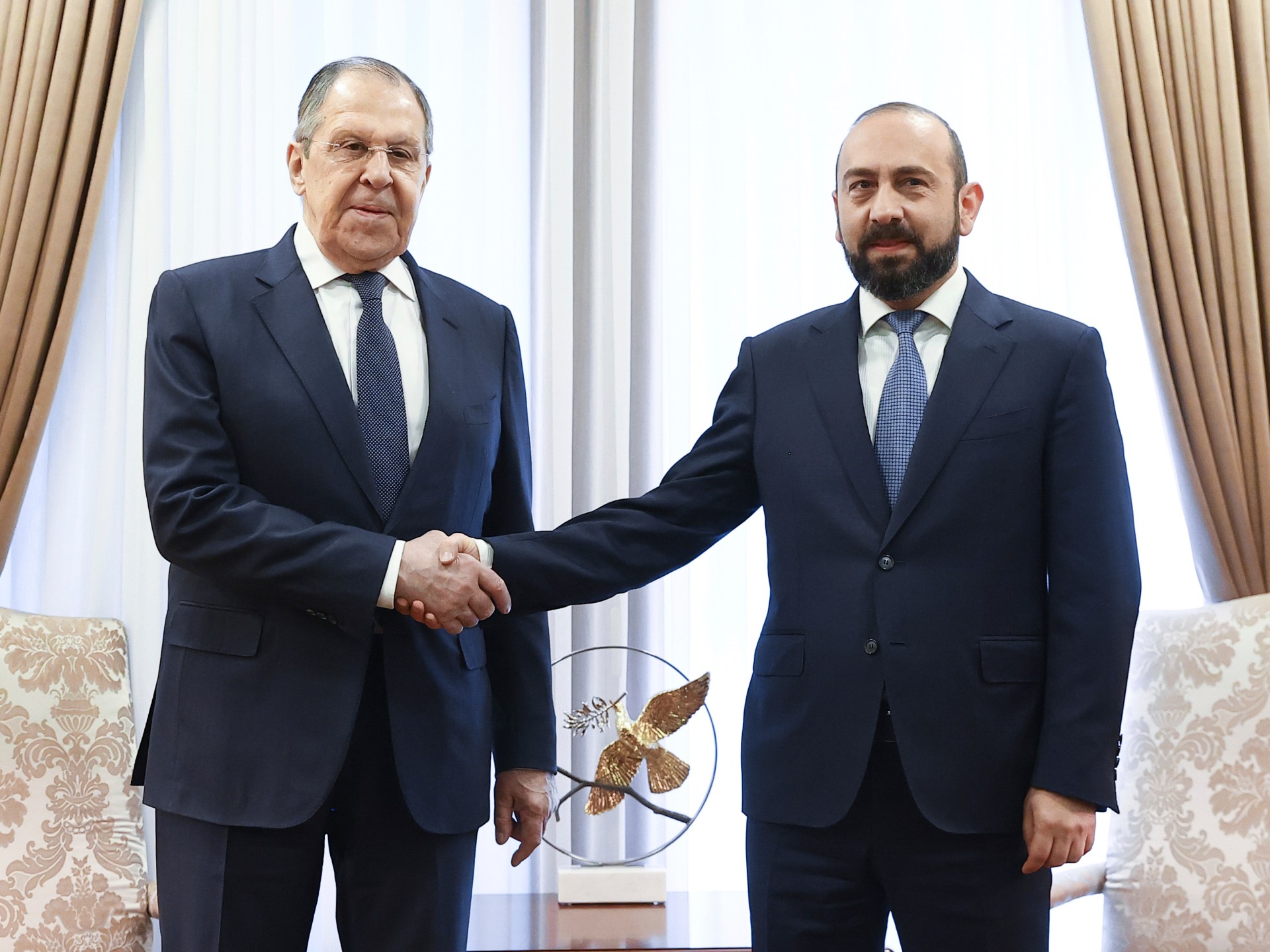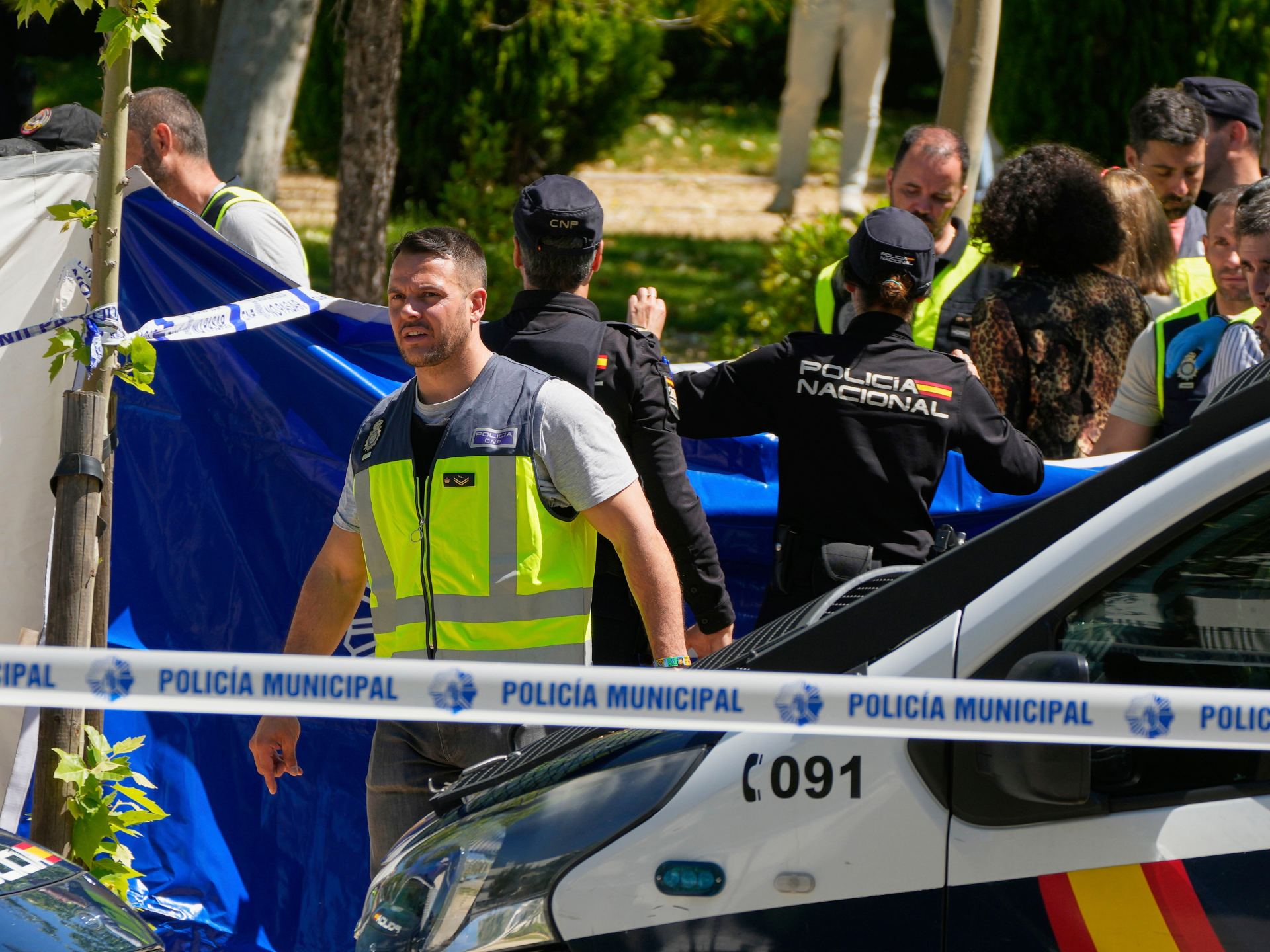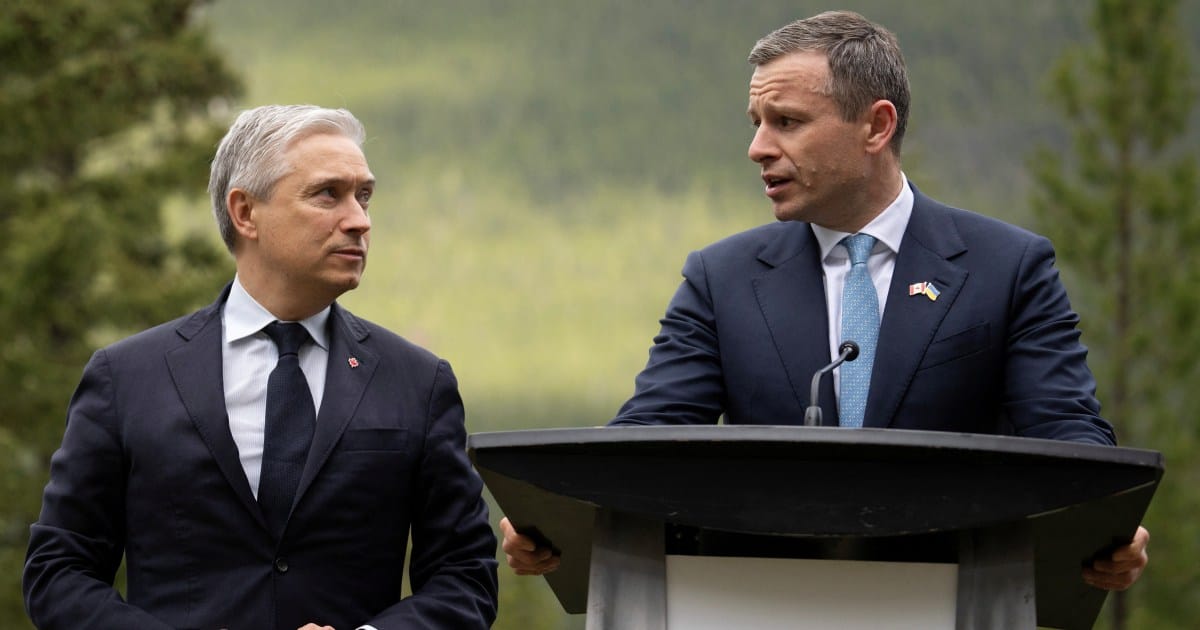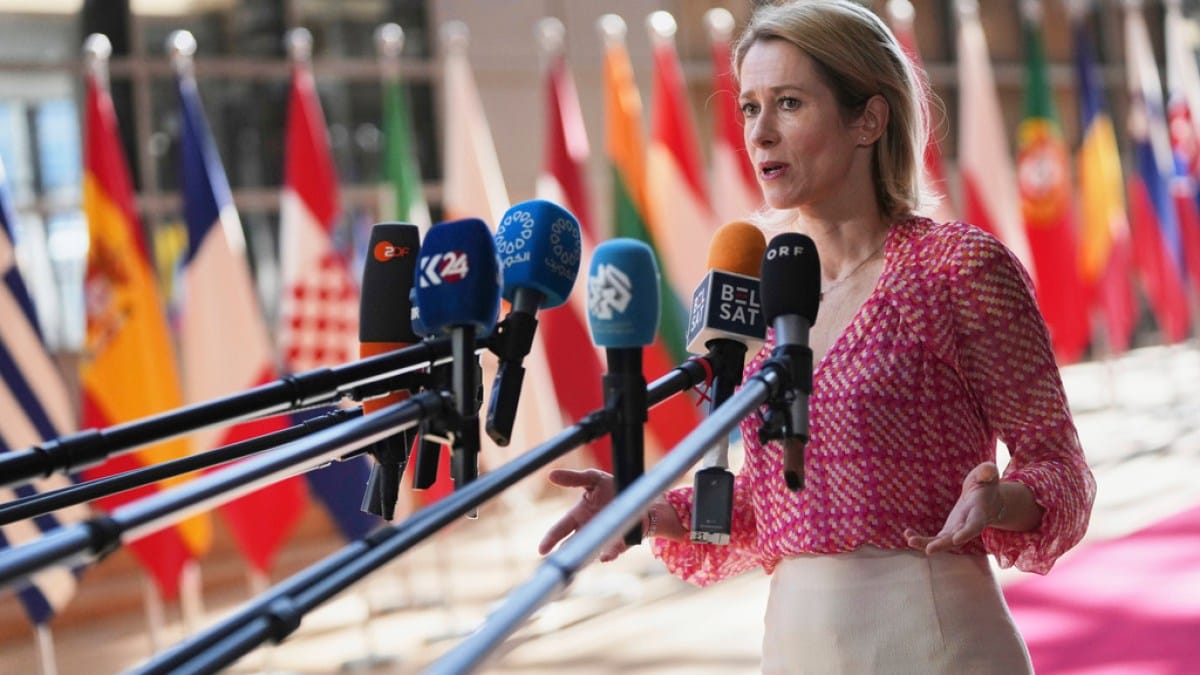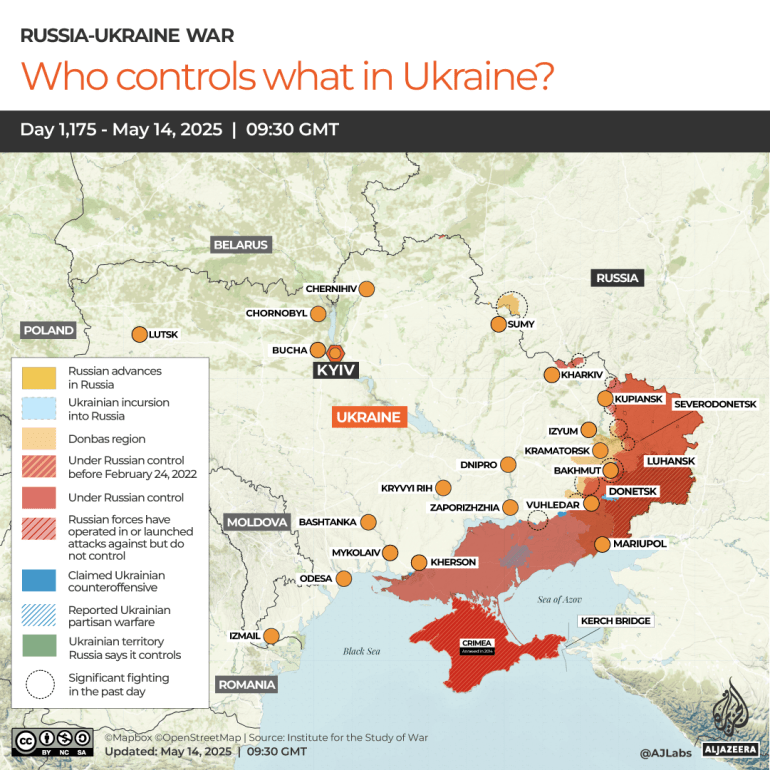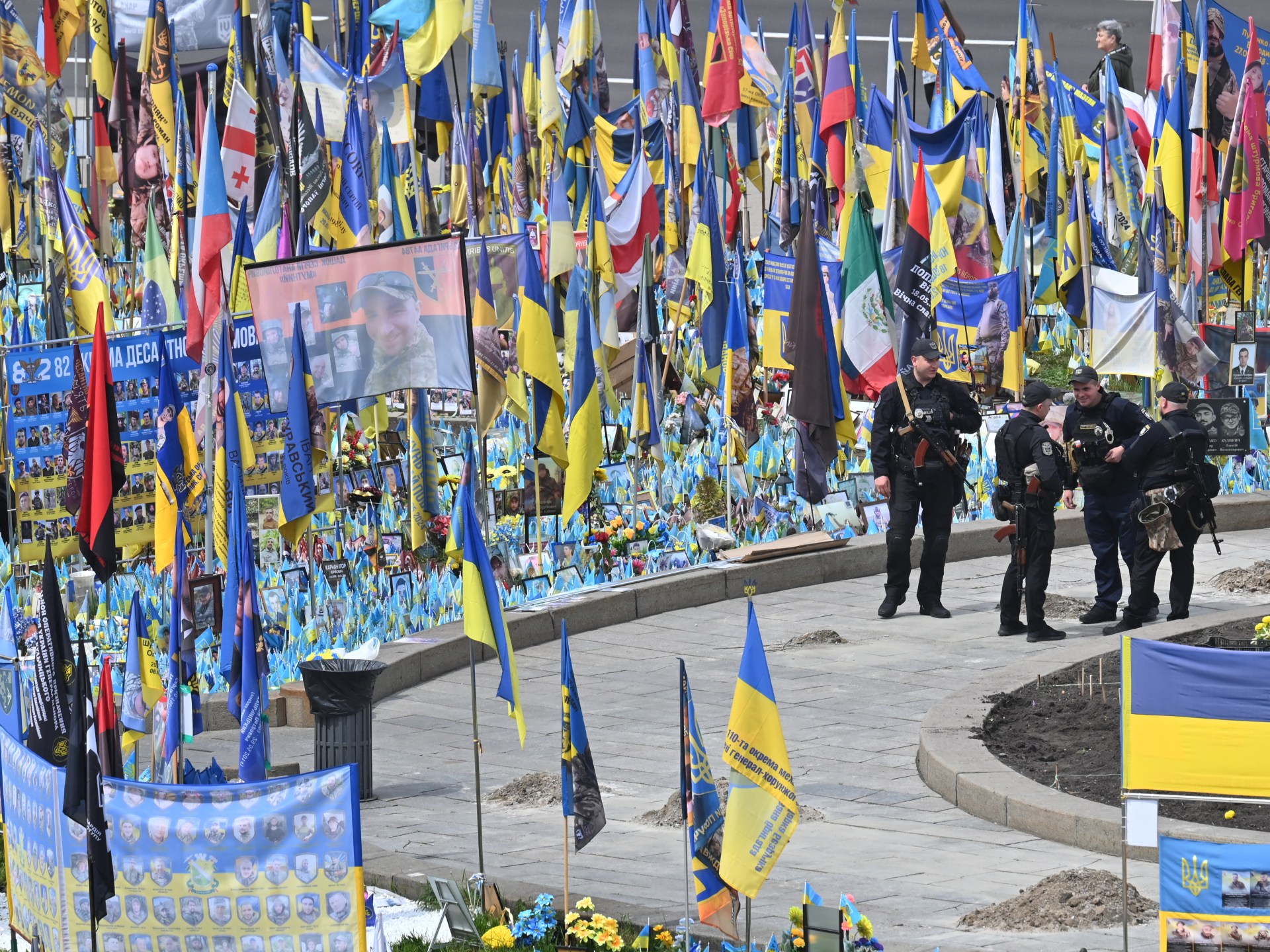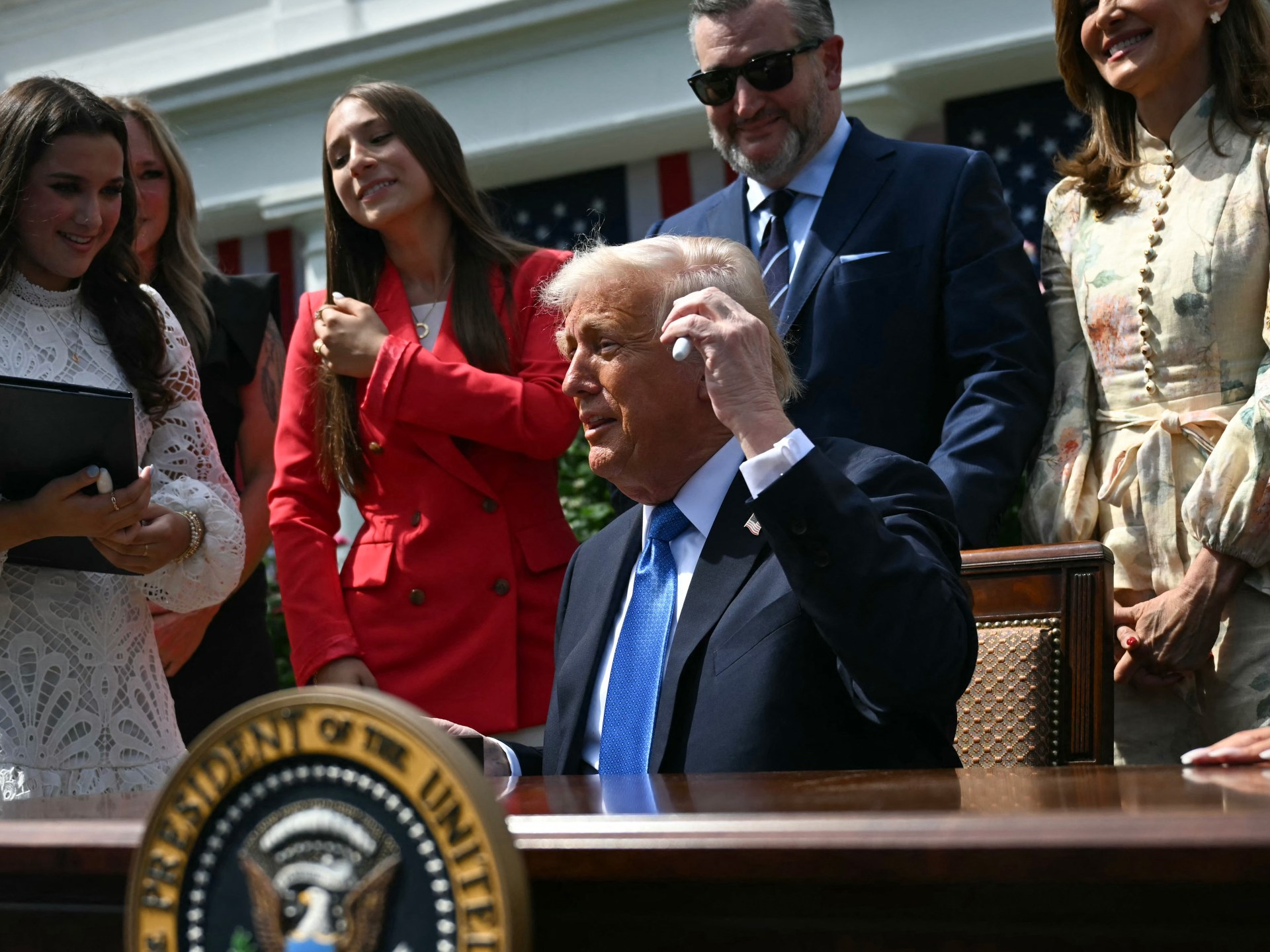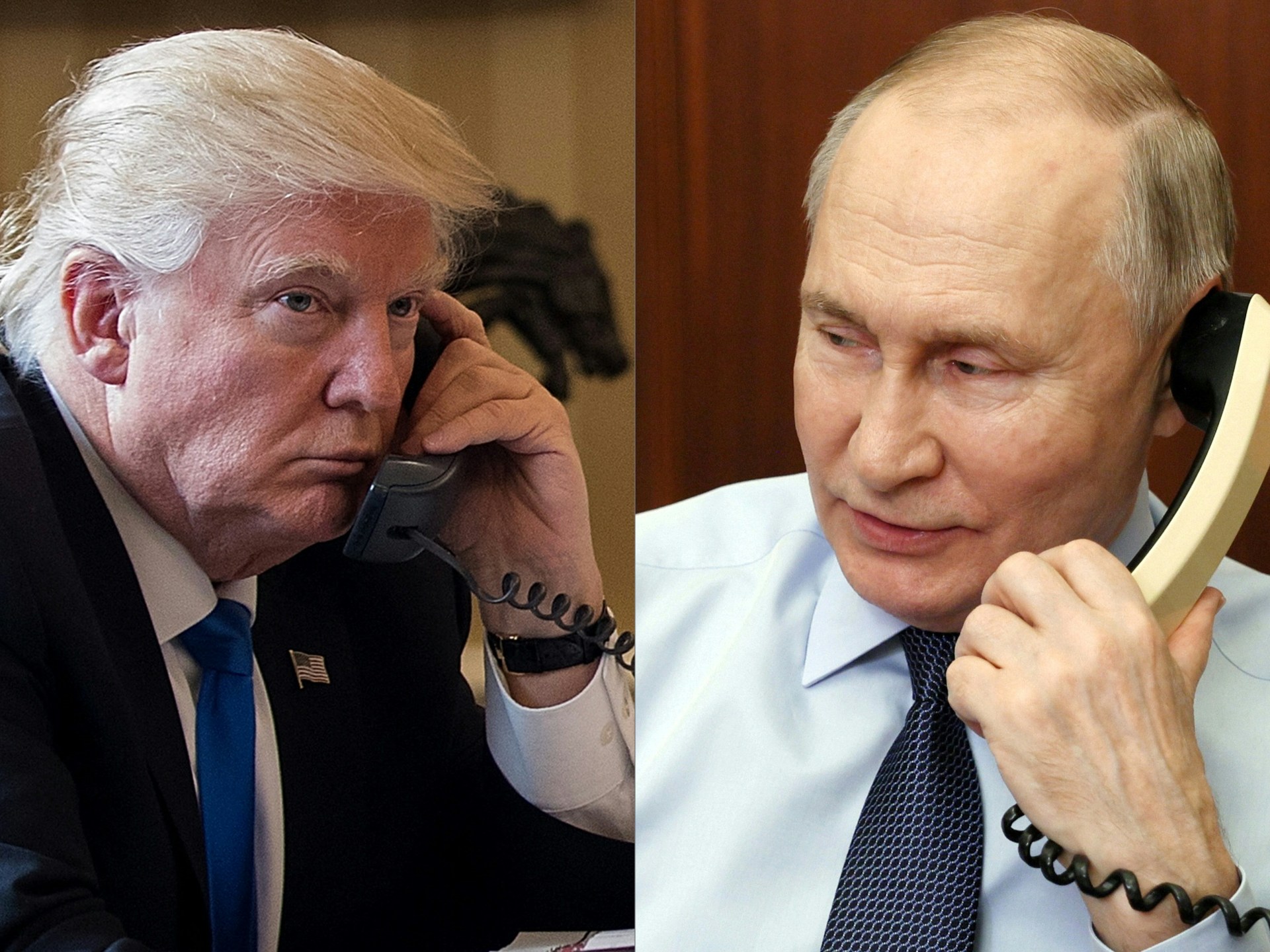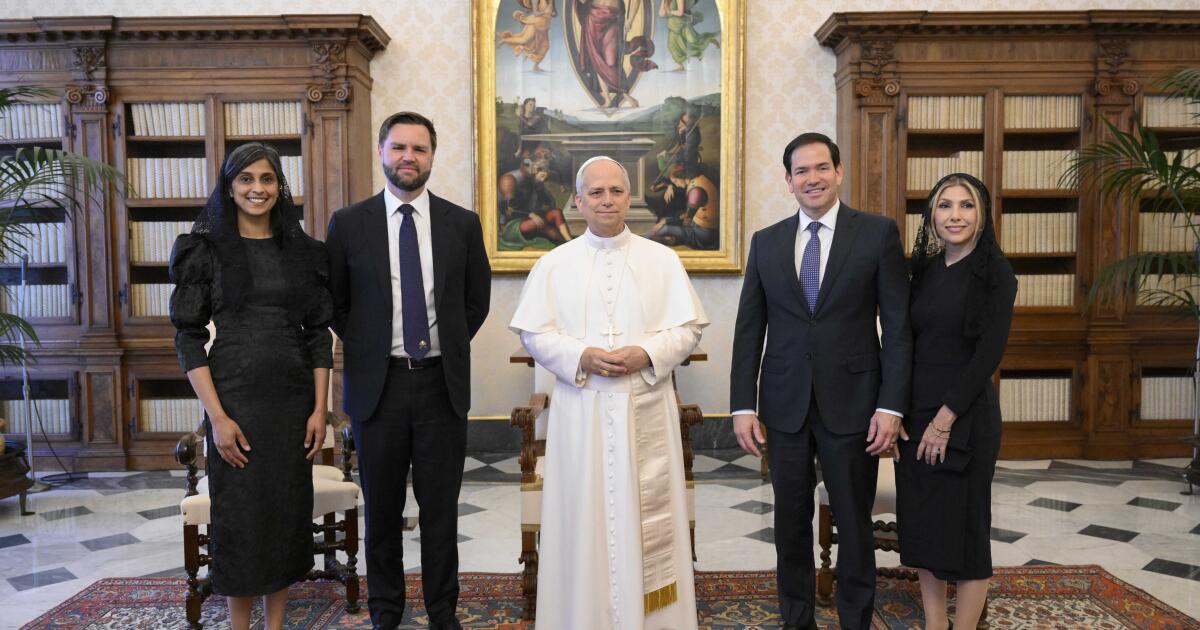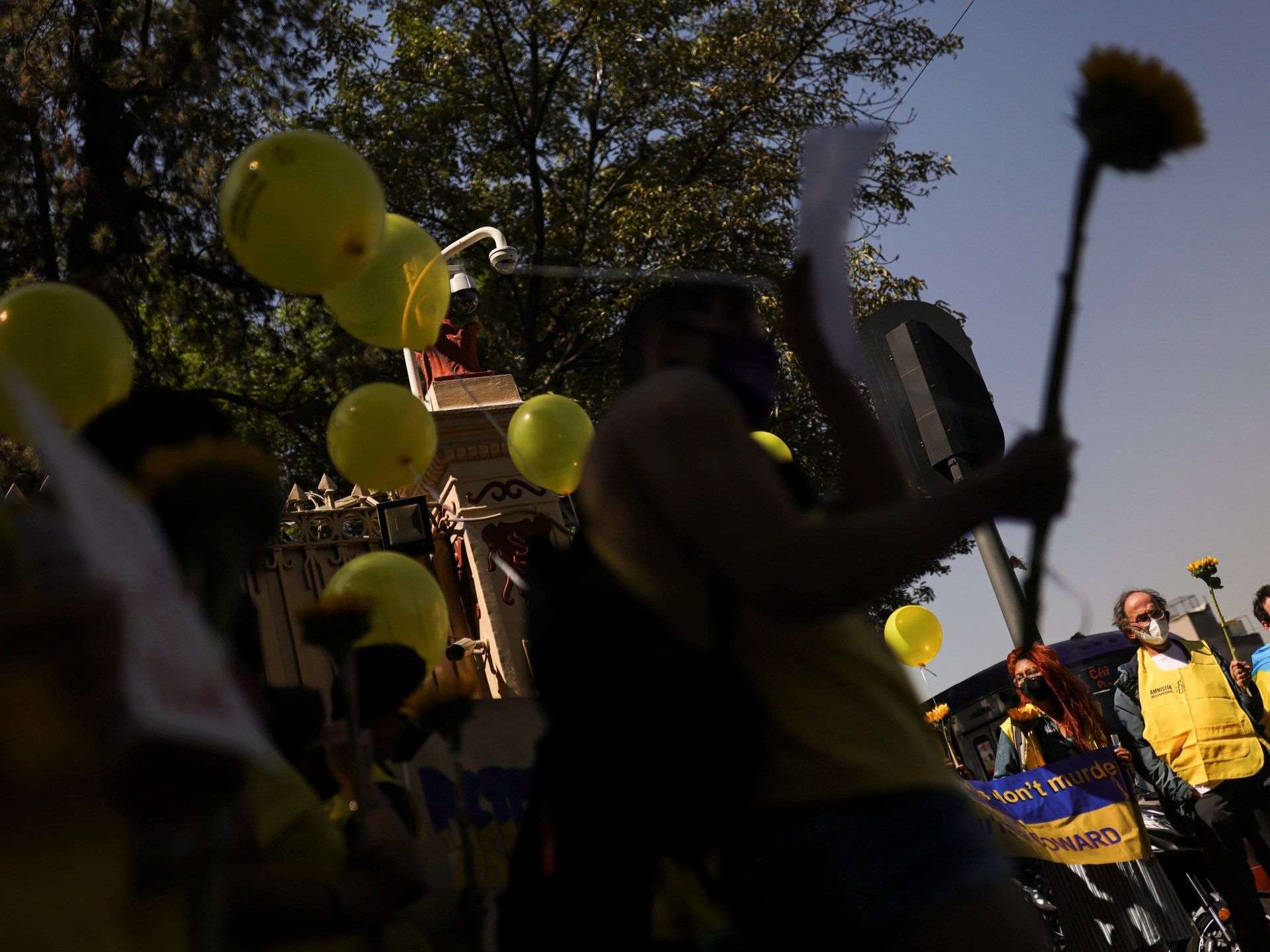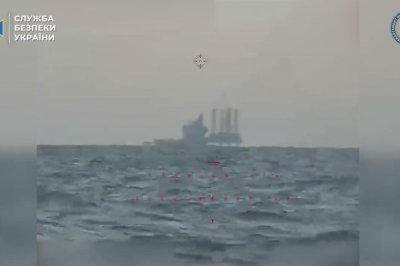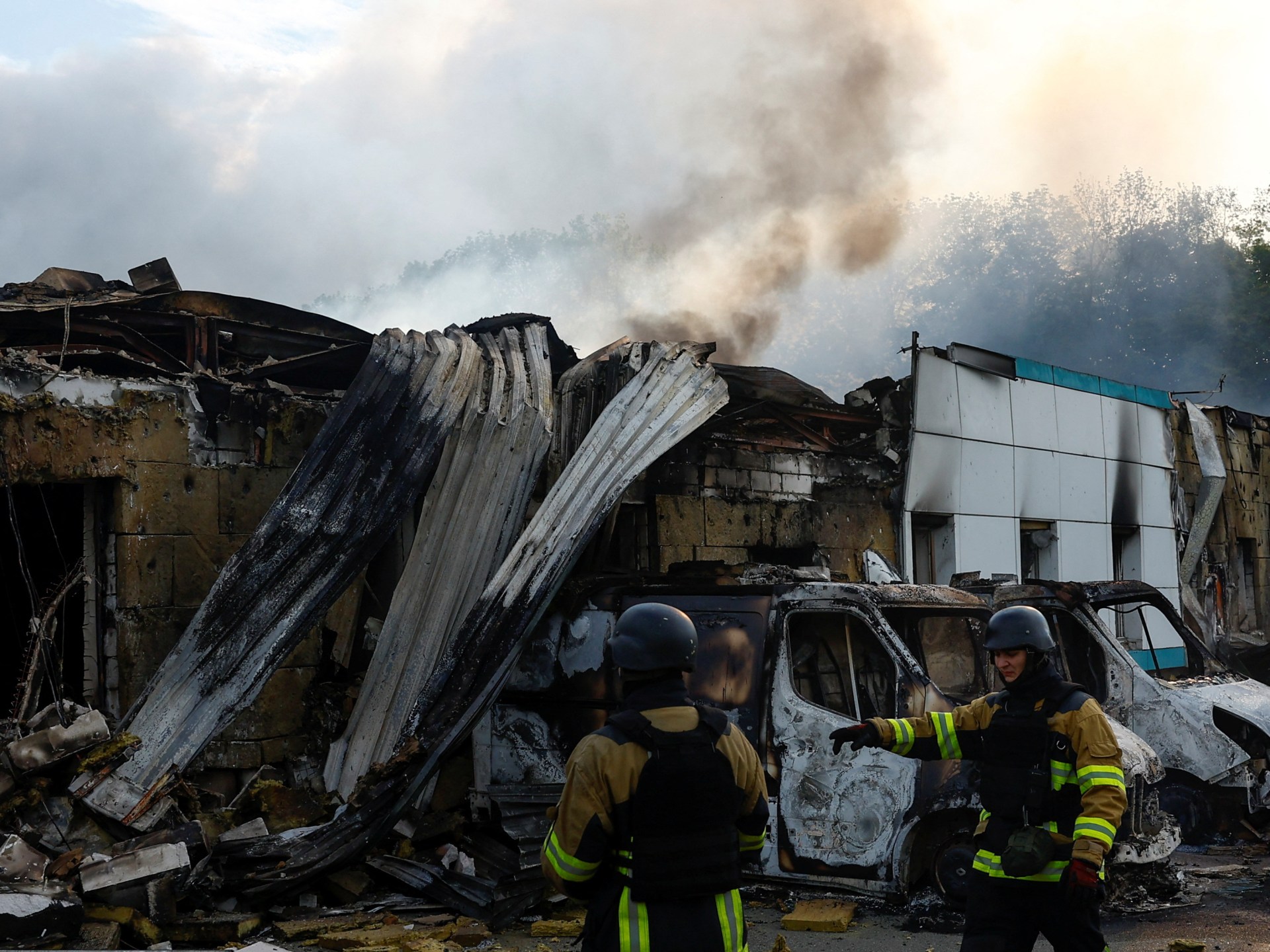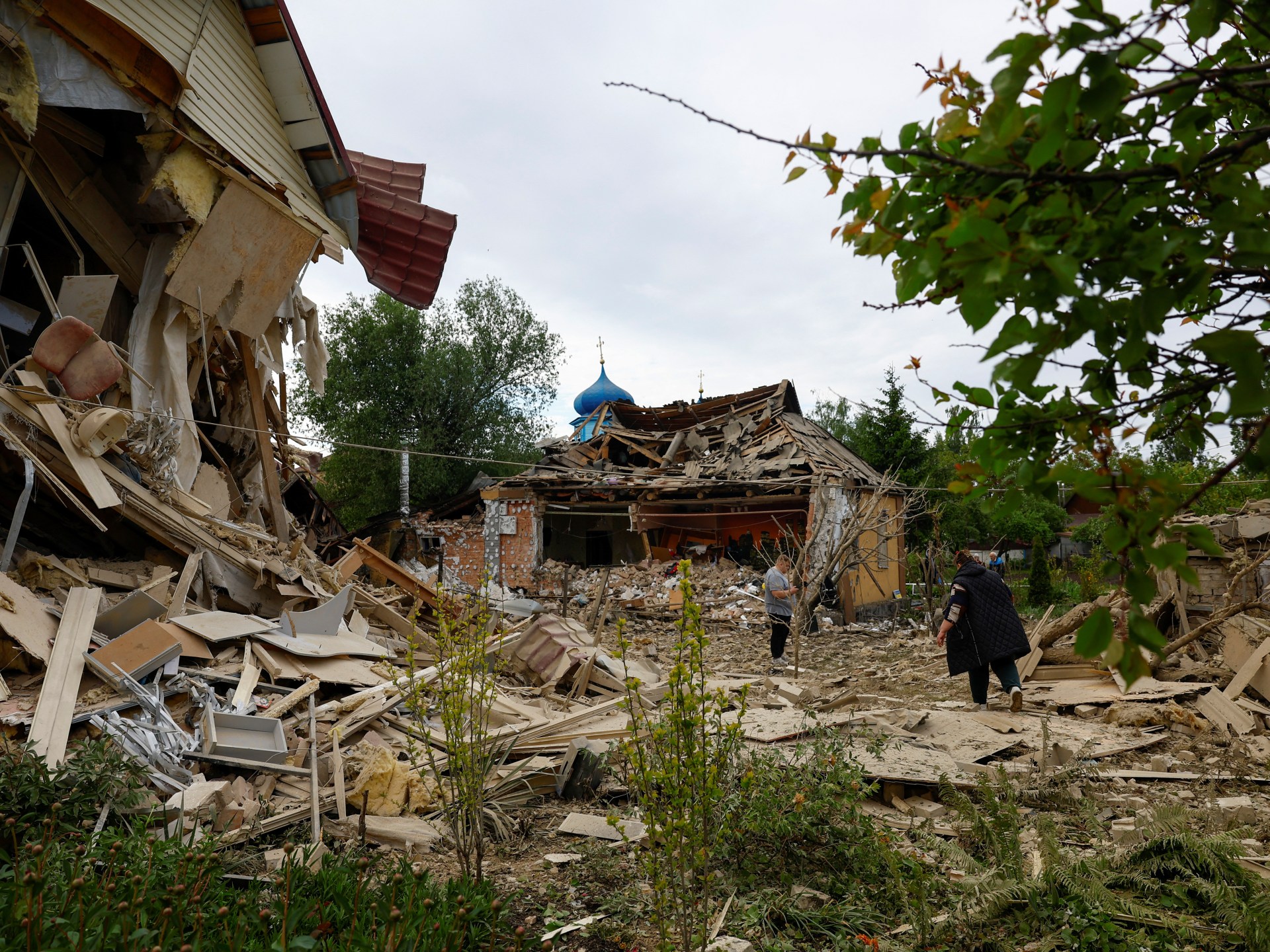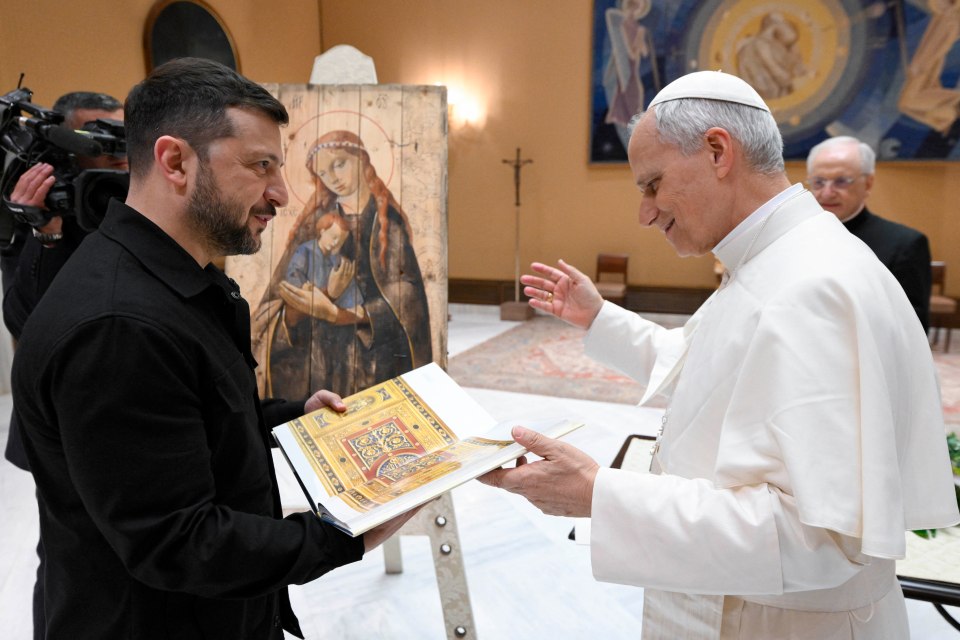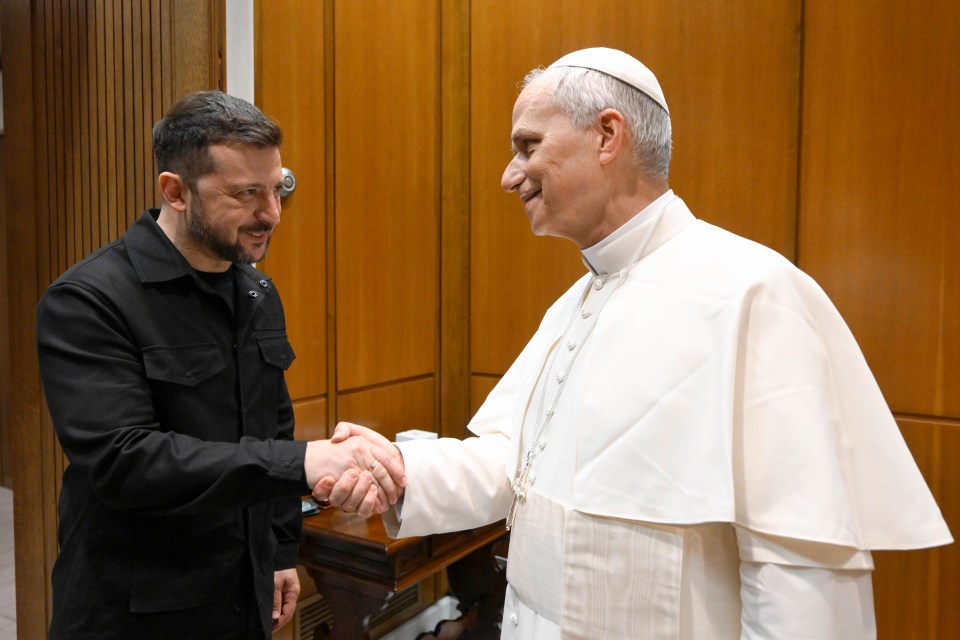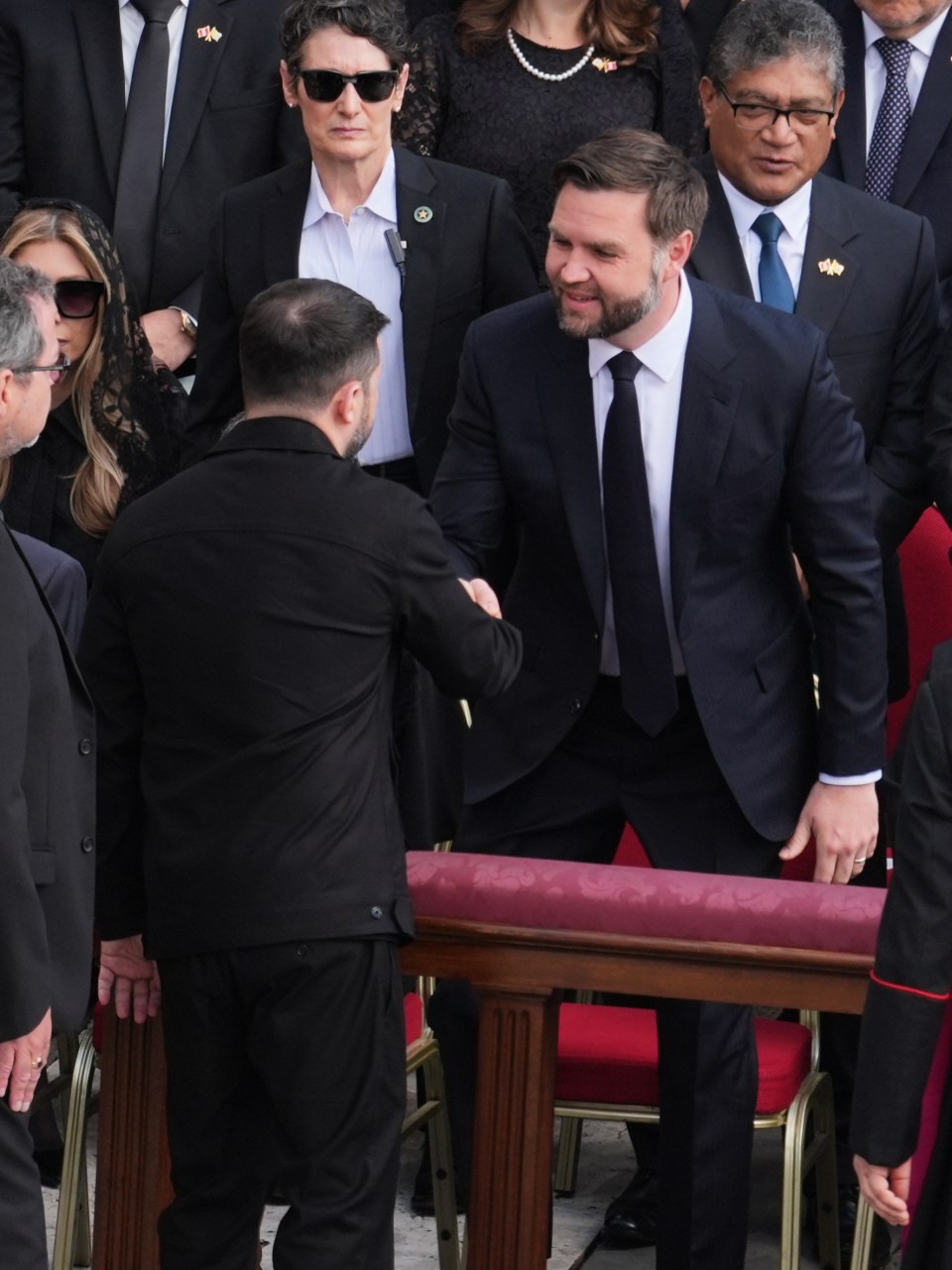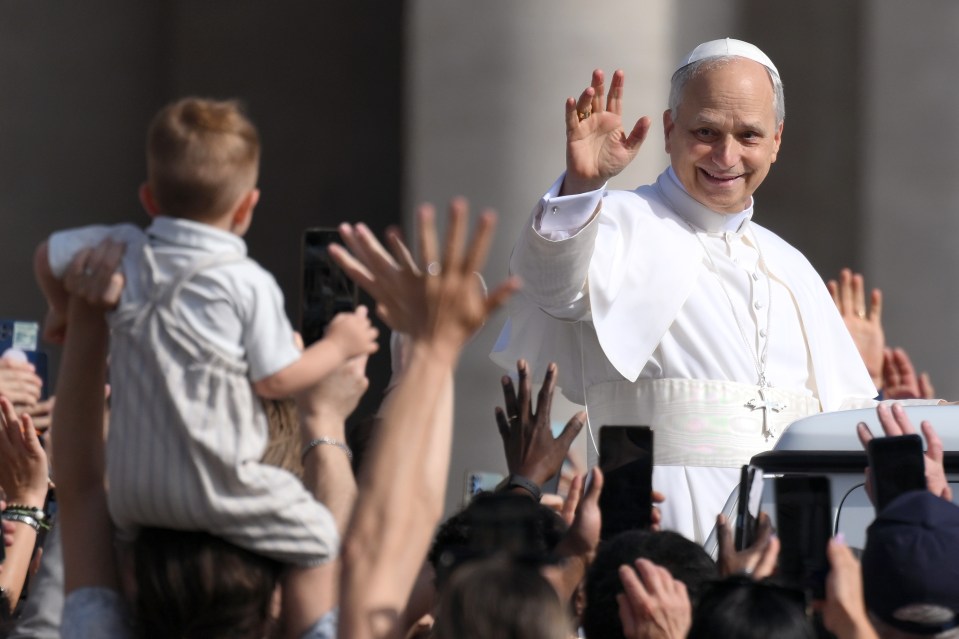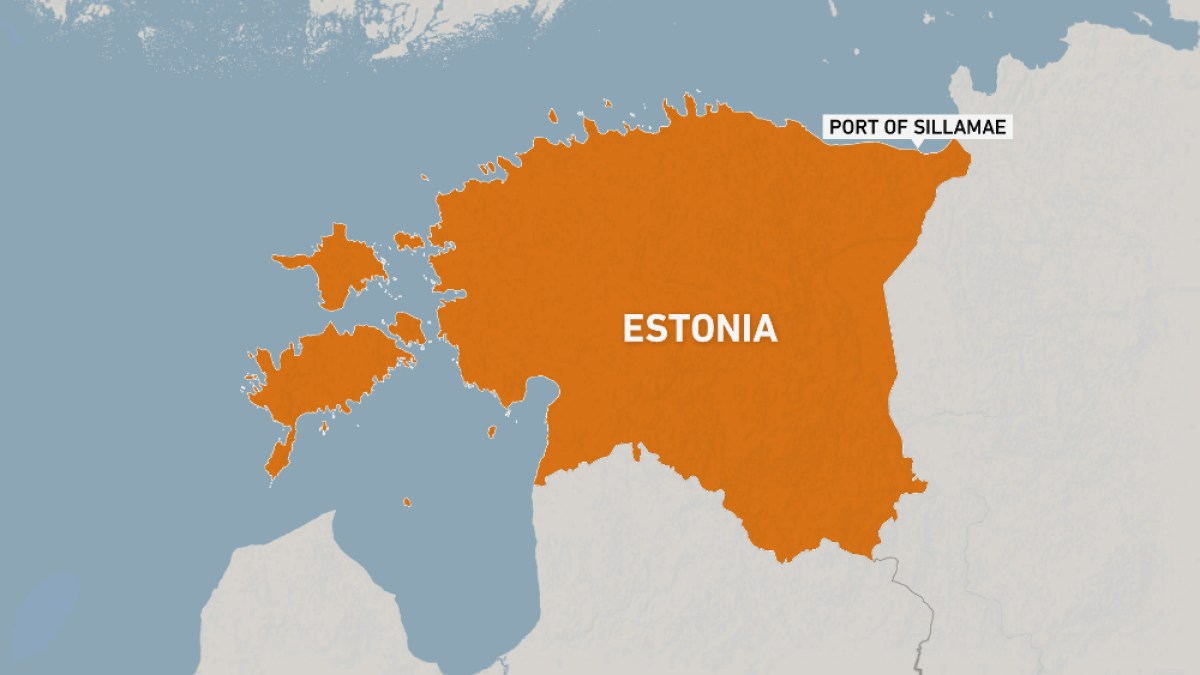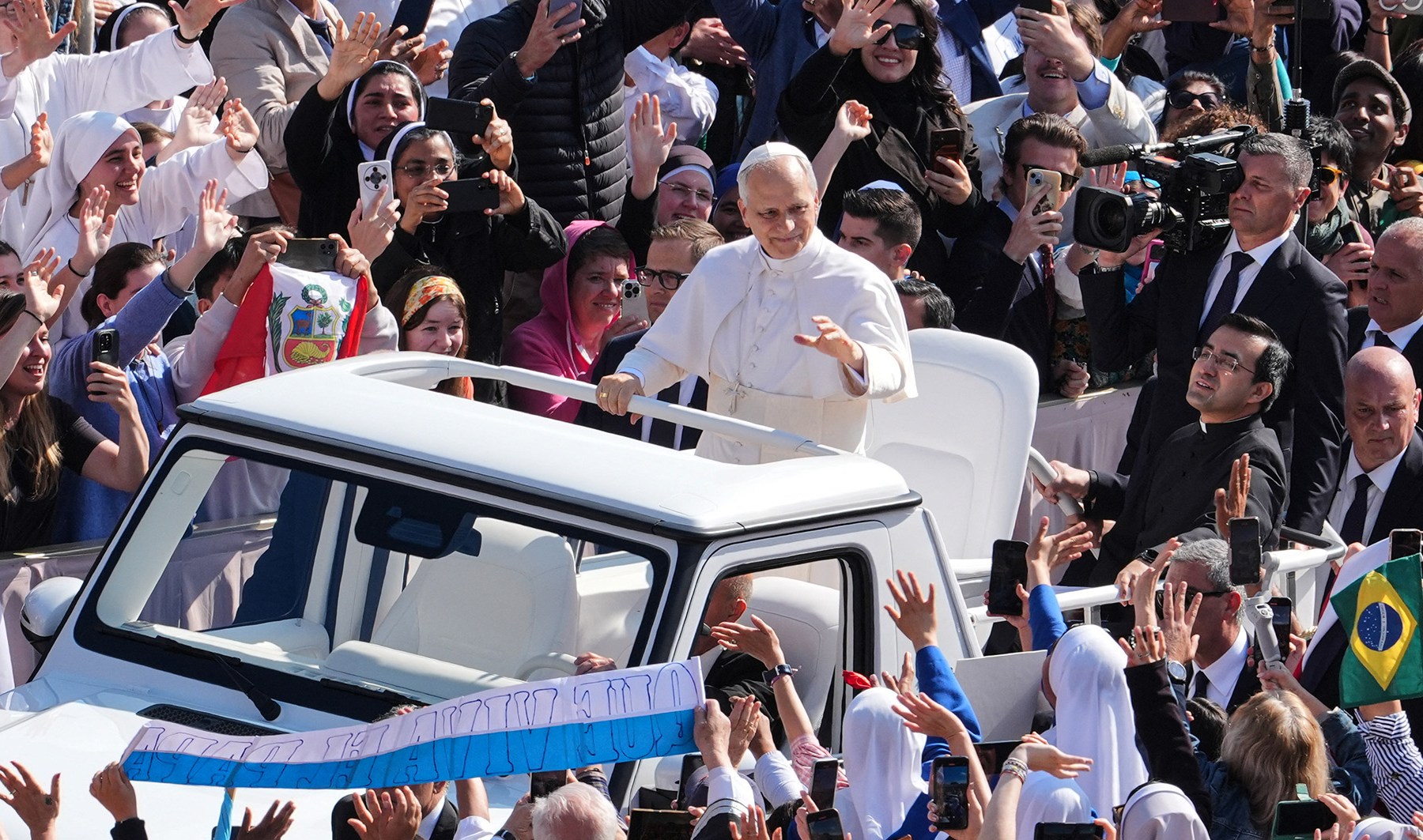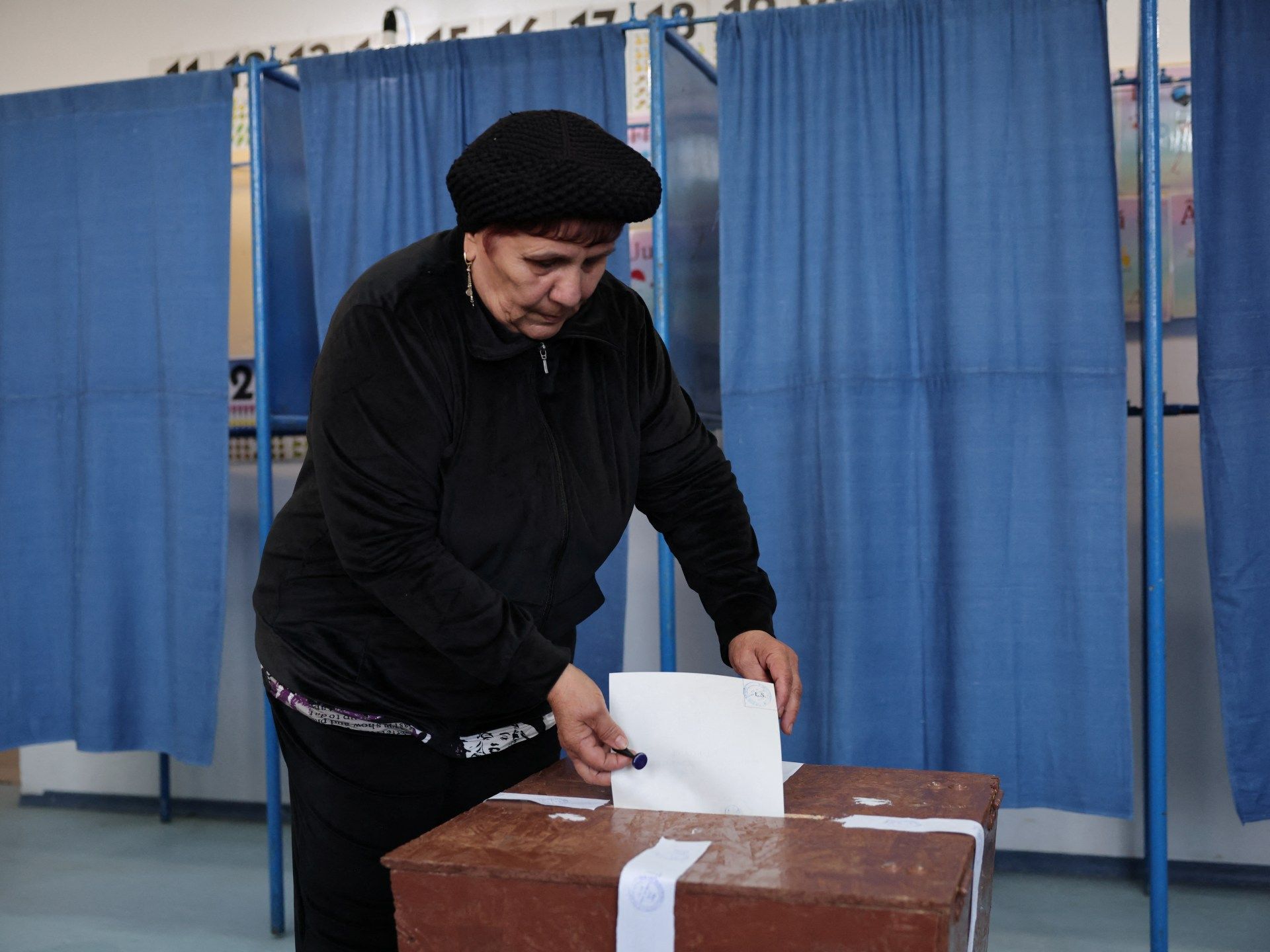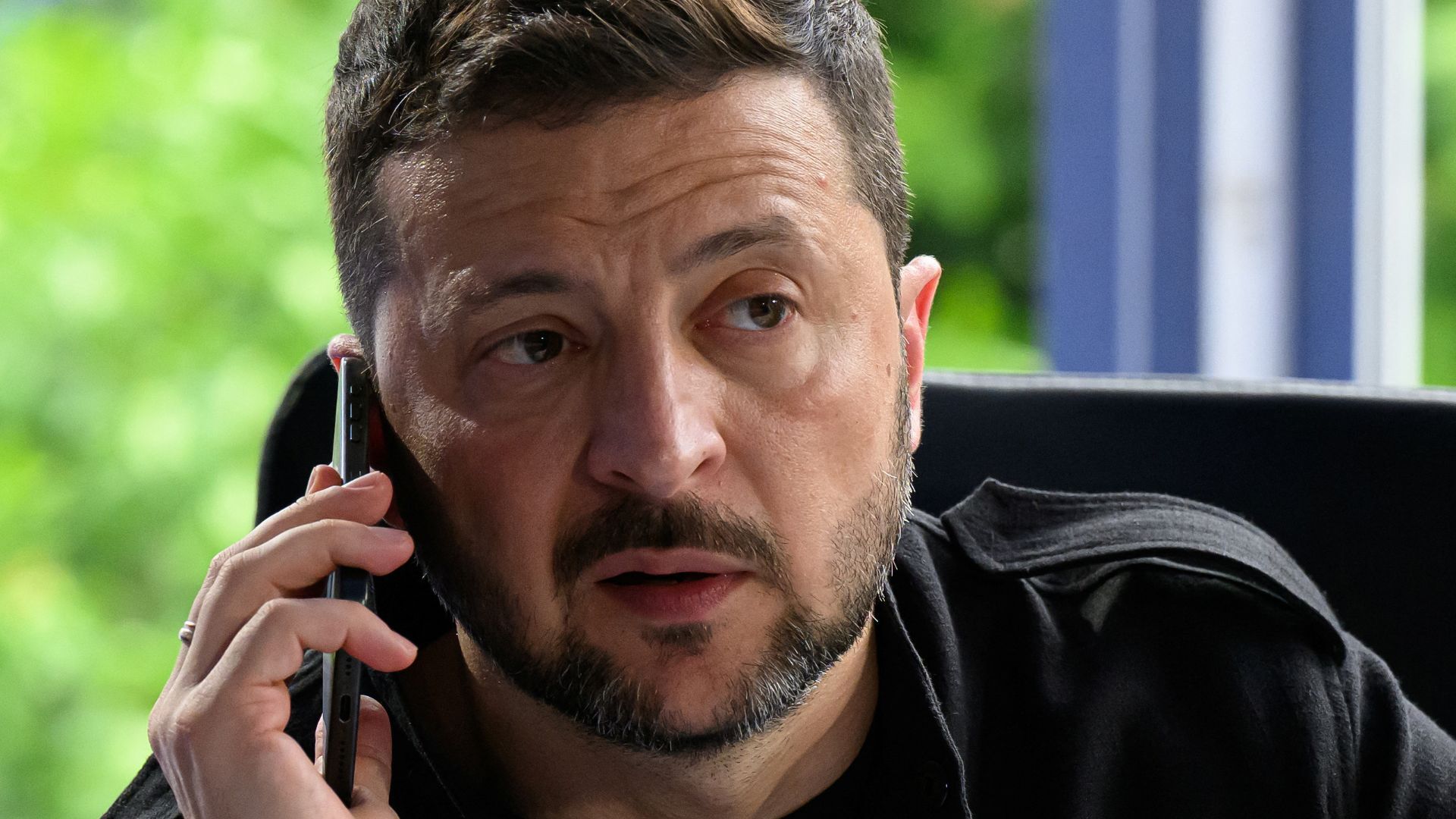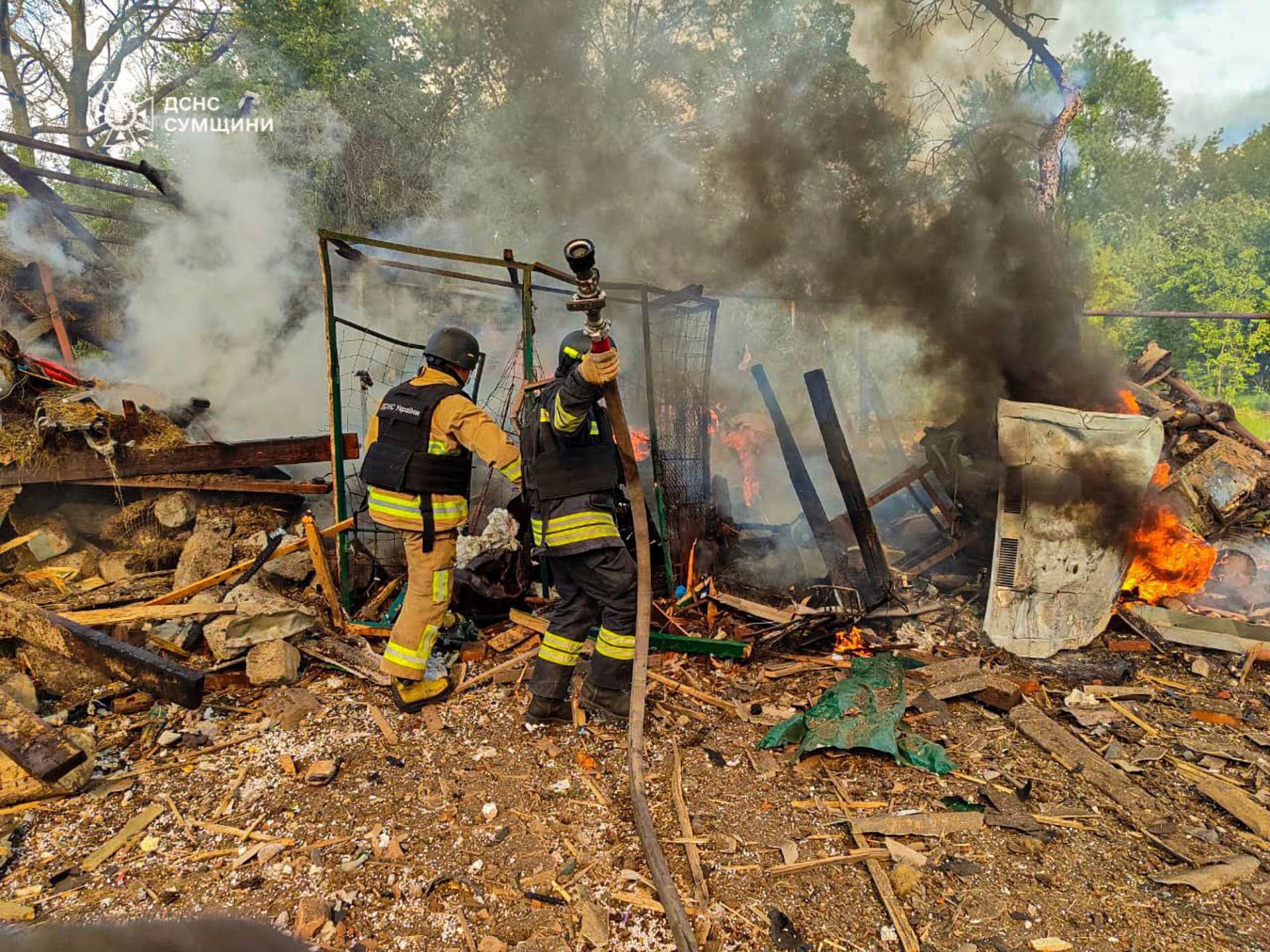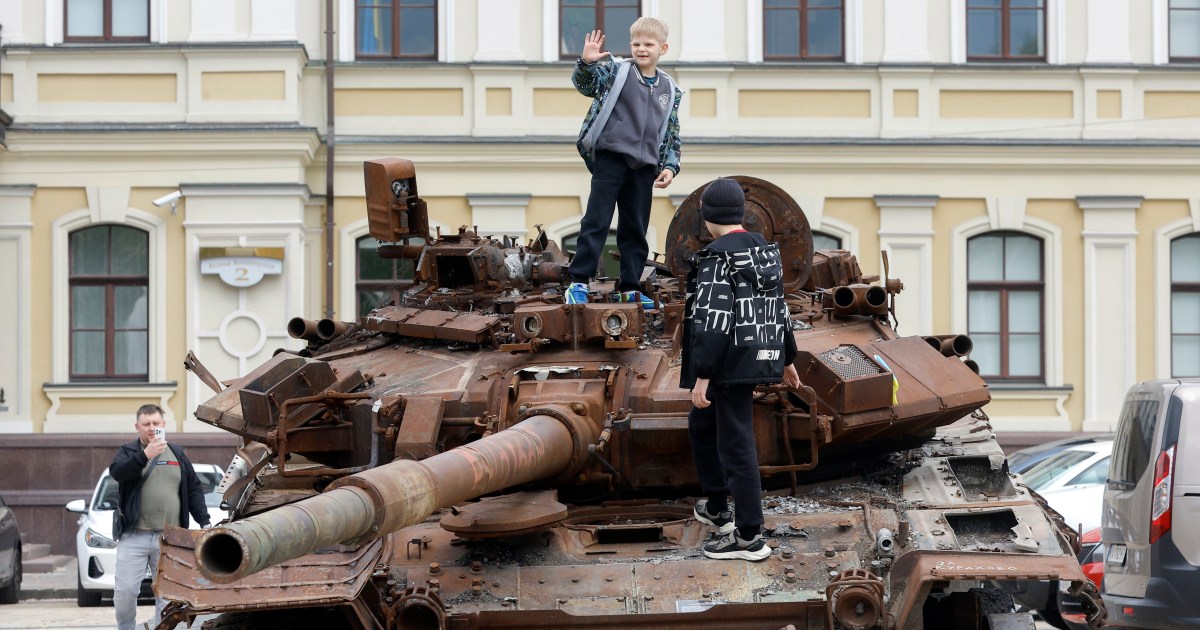Ukraine’s European allies are considering the possibility of using their air forces to defend the country’s western skies from drone and missile attacks without the help of the United States, sources familiar with the talks tell Al Jazeera.
The plan, known as Skyshield, could put NATO planes and pilots into Ukrainian airspace for the first time, sending a powerful political message to Russia that Europe is committed to Ukraine’s defence.
Skyshield is more likely to come into effect as part of any ceasefire, especially if European ground forces are committed. But it was designed by Ukrainian and British aviation experts to work under combat conditions as well.
“It’s being taken very seriously into consideration by the UK, France,” said Victoria Vdovychenko, an expert on hybrid warfare at Cambridge University’s Centre for Geopolitics, who has sat at some of the meetings. “German colleagues and Italian colleagues also do know about that, as well as the Scandinavian colleagues,” she said.
When it comes to implementing Skyshield in wartime conditions, she admits, “some of the partners are still fluctuating in their decision making”.

Skyshield was published in February and is the brainchild of Price of Freedom, a Ukrainian think tank founded by Lesya Orobets. She came up with the idea during an air defence crisis last spring, when Republican lawmakers in the US delayed the passage of a $60bn bill to send more aid to Ukraine.
During a phone call with the head of Ukraine’s air force, Orobets was told, “We are in the middle of a missile crisis. We don’t have enough [interceptors] to shoot down the missiles.”
Skyshield calls for the deployment of 120 European aircraft to protect Ukrainian civilian infrastructure and export corridors along the Danube River and the Black Sea, freeing up the Ukrainian Air Force to focus on the first line of defence in the contested east of the country.
“There would be a piece of land of 200 kilometres [125 miles] between them at least,” said Orobets.
European jets would be based in neighbouring Poland and Romania, and fly mostly west of the Dnipro, protecting Kyiv on both sides of the river in the north of the country.
A higher-risk strategy
Western commanders are wary of costs, casualties and military implications.
Hourly flight costs, which include training, parts and maintenance, range from $28,000 for an F-16 to about $45,000 for a fourth-generation Rafale jet, Colonel Konstantinos Zikidis of the Hellenic Air Force told Al Jazeera.
“We’d have to pay for people to be there, several shifts a day in all specialities … it will be exhausting,” he said, referring to aircraft technicians and pilots.
“On the other hand, the proposal downplays the effectiveness of air defence systems, which are very effective against cruise missiles and have a far lower hourly operating cost than aircraft,” Zikidis said.
“It’s also not really the job of aircraft to hunt down cruise missiles. They can do it if they are given coordinates by air command. They can’t go out on flight patrol and spot them by chance. So you need a very thick radar array to cover a given area, especially at low altitude.”
European NATO members do not operate AWACS airborne radar, which would be the ideal tool for the job according to Zikidis, but Ukrainian pilots have already downed Russian cruise missiles using air-to-air missiles, suggesting the ground-based radar assets are there.
Europe has provided Ukraine with Patriot and Samp-T long-range air defence systems and Iris-T medium-range systems, but these are enough only to protect larger urban centres, said Vdovychenko. Russia is also stepping up its attacks. Ukraine’s President Volodymyr Zelenskyy said on May 4 that Russia had launched almost 1,200 long-range kamikaze drones and 10 missiles in just a week.
These types of weapons are routinely directed at civilian and industrial infrastructure, not the front lines, and Russian President Vladimir Putin is increasing production. Last year, Russia’s factory at Alabuga produced 6,000 Shahed/Geran long-range drones, said Ukraine’s head of the Center for Countering Disinformation, Andriy Kovalenko, last month. He said Putin set production at 8,000-10,000 drones this year.
The effects are visible. High-profile attacks on Kryvyi Rih, Kharkiv and Kyiv have killed dozens of people this year.
The second problem European air forces would face is that of casualties.
“If one European plane falls and a pilot is killed, it will be very difficult for a European government to explain it,” said Zikidis. “For a Greek pilot to go and get killed in Ukraine could bring the government down,” he added.
“I don’t think that there is a political will [for that], and that is what stops this partially,” said Vdovychenko.
But Orobets put this risk in a wider context.
“We’re talking about catching cruise missiles and putting down the offensive drones, which is quite an easy target for trained pilots,” she told Al Jazeera. “So we do consider Skyshield to be less risky [than enforcing a no-fly zone] or any participation of the European troops closer to the front line.”
Strategic intimidation
Thirdly, there are the military implications. Skyshield is partly about freeing up the Ukrainian Air Force to strike deeper inside Russia, deploying the estimated 85 F-16s it is being given.
That is because Russia has this year intensified its use of controlled air bombs (CABs), which are directed against front lines, reportedly dropping 5,000 in April versus 4,800 in March, 3,370 in February and 1,830 in January.
Ukraine would target the airfields from which Russian jets take off to drop the CABs. It would also move missile launch systems closer to the front lines, increasing their reach inside Russia.
CABs are Russia’s most effective weapon at the front, and it has successfully leveraged its nuclear arsenal to intimidate NATO into allowing them to be flown in.
The Biden administration had refused to allow Ukraine to deploy Army Tactical Missile Systems (ATACMSs), which have a range of 300km (190 miles), because Russia considered their use dependent on US intelligence, in its view, making the US a cobelligerent in the war.
It has expressed exactly the same view of Germany sending its 500km (310-mile) range Taurus missile to Ukraine.
In the same vein, Russia has threatened to act against any European force deployment to Ukraine.
Russian Security Council Secretary Sergei Shoigu last month told a summit of the foreign ministers of the BRICS group of states in Rio de Janeiro that “military units of Western states on Ukrainian territory … will be considered as legitimate targets”.
These threats have been effective. The Biden administration was against the idea of allowing the Polish and Romanian air forces to shoot down drones and missiles in Ukrainian airspace that were headed into Polish and Romanian airspace, Orobets said.
The Biden administration “thought that if any American pilot on any American jet or any Western jet would enter the Ukrainian airspace, then America or another country would become cobelligerent”, she said.
The same applied to the notion of Europeans entering Ukraine’s airspace.
“They were scared that Russians would then escalate to the level of a conflict they could not sustain. So that was the only reason. There was no reason like, ‘Oh, we cannot do that’,” she said.
